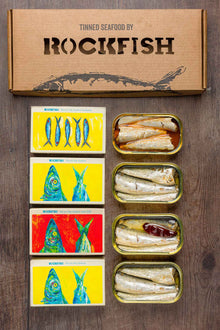In countries like Spain and Portugal, seasonal catches are kept at their best by preserving them in tins. The process is an art form in itself, as the fish are transformed into something truly magical for eating throughout the year. With the seas around Britain offering some of the best fish in the world, our tinned seafood captures that quality, preserving British-landed fish in peak condition, as good as the day it was caught.
